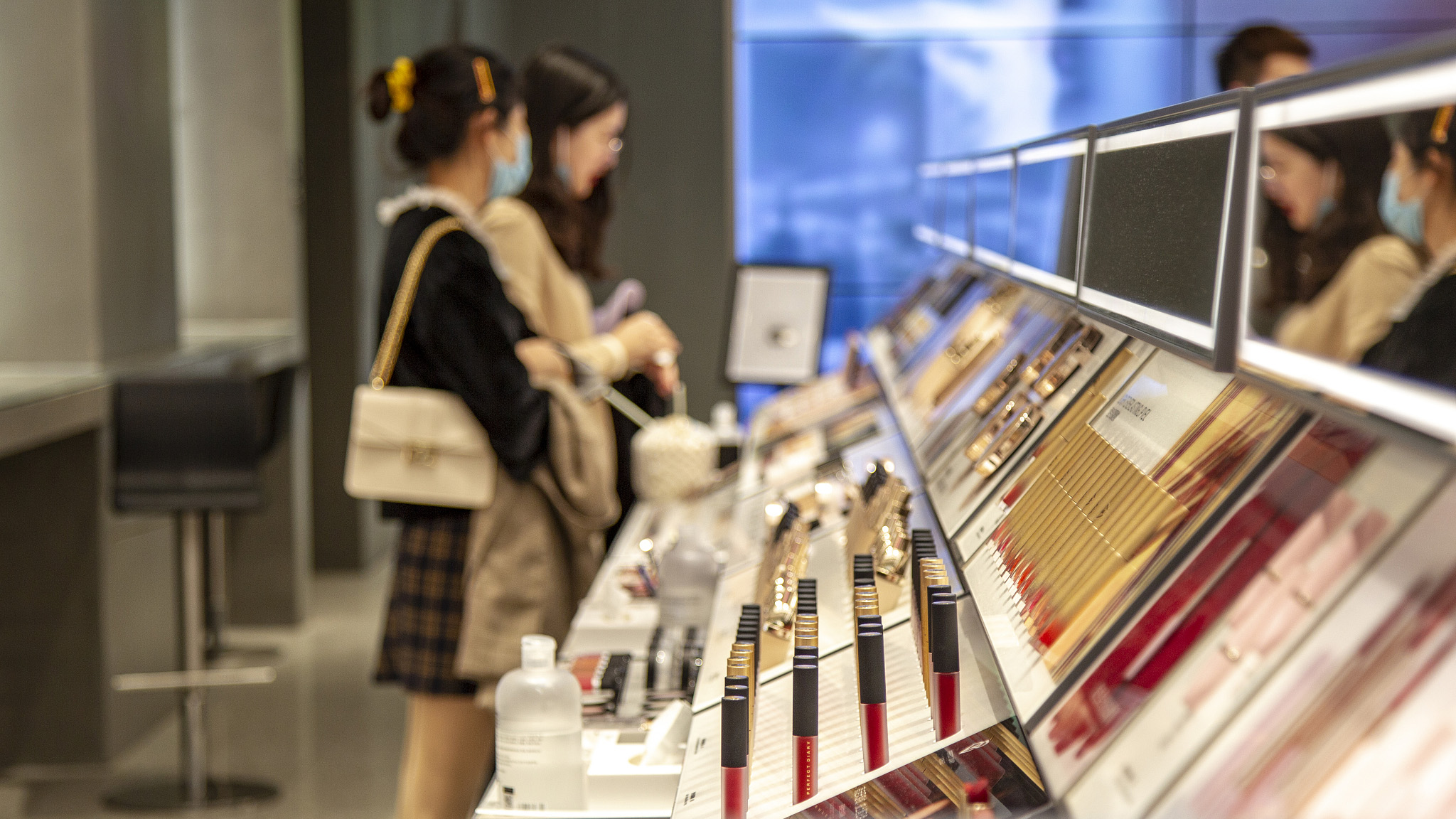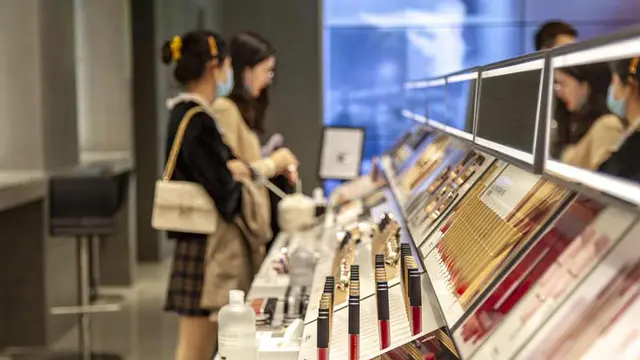03:07

Those born after the 1990s are a generation with a growing sense of cultural confidence. As a result, "Made in China" products have become the first choice for these young Chinese as many are now saying they prefer locally-made cosmetic products.
China's cosmetics market used to be dominated by international brands. And local brands largely did not enjoy the same prestige. Less satisfying quality and design were people's first impression when asked about domestic counterparts. However, this old stereotype has been gradually changing.
Many like Bai Xiaomeng may find their makeup dresser gradually being taken over by domestic brands. As a beauty blogger, Bai found Chinese cosmetic brands are continually improving, especially in the design and product concept. In her view, now they can definitely compete with those international big names. Based on her experience at the press conference, Chinese brands are also quite innovative in collaborations and product quality.
Indeed, according to a report released by tech giant Tencent.com, Chinese cosmetics brands now account for 56 percent of China's market share. A CBNData report shows Generation Z and the post-90s generation make up more than half of China's online cosmetics consumers in 2020. Over 40 percent of the products they use were from local brands.
Some cosmetic consumers are shifting their habits of only using foreign brands to indigenous ones in their daily life, since the latter is more economical, especially for students. The others choose them as gifts to family or friends, simply for their beautifully designed wraps and high quality.
Instead of blindly chasing big brands, the post-90s generation is attracted to products that not only look good but are value-for-money. Cosmetics products designed with motifs related to Chinese traditional culture are now top sellers. There's even a term coined to represent this newfound identity trend – "China Chic." Behind all this, is simply a gradual trend of Chinese culture and products quickly gaining the confidence and trust from the young generation.
George Ren, a senior partner at Roland Berger, pointed out Generation Z are "more open towards domestic brands", as long as functional and emotional benefits justify themselves. Meanwhile, reasonable prices have long been a key factor when younger generations choose cosmetics products.
From various intellectual property crossovers to online marketing on social media platforms like "Douyin", China's TikTok, and "Xiaohongshu", new Chinese brands are resonating with young users, winning over their hearts and purses. These internet platforms are helping these cosmetic products stand out, magnify their unique qualities and simply bringing in customer traffic.
Now it seems a good window of opportunity for domestic skincare and cosmetic brands to develop themselves. But just as Ren warned, the majority of Chinese consumers still care about the true value of brands, no matter it's international or domestic. So fundamentally "it's all about how to develop and demonstrate the real power of products and brands."
Having a "rich and prosperous culture" is a major component of a "moderately prosperous society", as China further grows its economy and improves the livelihood of its people. This rising culture of confidence among the young generation will provide more business opportunities for domestic brands.
 简体中文
简体中文





